december-top.html
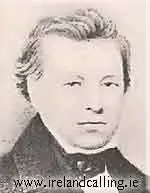 1861 John O’Donovan died in Dublin on this day in 1861. He was a writer and historian, and his works were the basis for historical studies of Ireland for more than a century.
1861 John O’Donovan died in Dublin on this day in 1861. He was a writer and historian, and his works were the basis for historical studies of Ireland for more than a century.
O’Donovan was born in County Kilkenny and in his early career worked as a researcher for an antiques dealer. O’Donovan then moved to work for the Ordnance Survey of Ireland where he studied the history of towns and villages across the country. He then moved on to work on his own projects with his brother-in-law Eugene O’Curry. The two men wrote significant accounts on this history and origins of Irish literature, families, folk tales and law. The two men produced the most comprehensive body of work on Irish history of the time.
O’Donovan is also credited for his translation of the vast collection of Irish historical records, the Annals of the Four Masters. This is a considerable account of people and events from Ireland dating back to the mythical Great Deluge, a flood that wiped out civilisation in around 3000BC.
The final piece of O’Donovan’s contribution to Irish historical literature was his proposal of a Dictionary of the Irish language. In 1852, he and O’Curry suggested the idea of a book detailing the history, development and definition of ancient Irish words. However, work didn’t begin on the dictionary until fifty years after O’Donovan had died. The Royal Irish Academy began writing the book in 1913 and it was completed in 1976.
Click here to read about more Irish writers
Click here to read about the major events and characters from Irish history
* * *
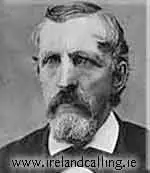 1826 William Ford was born on this day in Cork in 1826. He moved to America as a young man and married Mary Litogot and they had eight children, six of whom survived into adulthood.
1826 William Ford was born on this day in Cork in 1826. He moved to America as a young man and married Mary Litogot and they had eight children, six of whom survived into adulthood.
The Ford’s eldest son was Henry who grew up to found the Ford automobile company that has grown into one of the biggest companies in the world.
* * *
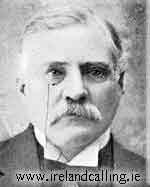 1904 Edmund Leamy died on this day in 1904. He was a member of the Irish parliament and also the author of various fairy tales. He was born in Waterford and was elected as their local politician in 1880.
1904 Edmund Leamy died on this day in 1904. He was a member of the Irish parliament and also the author of various fairy tales. He was born in Waterford and was elected as their local politician in 1880.
Leamy was a supporter of Charles Parnell and his Home Rule party. Leamy agreed that Ireland’s independence could be achieved in the Houses of Parliament rather than on the battlefield. He remained one of Parnell’s closest allies up until the split in 1890.
An affair between Parnell and the wife of a fellow politician Captain O’Shea had been made public and was considered to be a public scandal. Many of the party turned on Parnell, fearing his actions had discredited the Home Rule cause.
Leamy was one of the few politicians that stood by Parnell and felt his personal life had nothing to do with his political abilities. However, despite Leamy’s support Parnell’s career was finished and he died a short time later of a heart condition. Leamy remained in politics but also passed away a few years later.
Outside of politics, Leamy is notable for his writing career. He was a journalist for various newspapers and publications but also wrote fairy tales. The Golden Spears, By the Barrow River and The Fairy Minstrel of Glenmalure were all successful books written by Leamy. They are popular with many children around the world today and still available to buy at specialist bookshops or online.
Click here to read about more Irish writers
Click here to read some traditional Irish fairy tales
Click here to read the Charles Parnell Kitty O’Shea love story
* * *
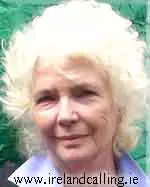 1941 Happy birthday to Fionnula Flanagan, born in Dublin on this day in 1941. She trained to be an actress and got her big break as Máire in the Telefís Éireann production of the Irish language play, An Triail in 1965. Flanagan won a Jacob’s Award for her performance. She then starred in a film adaptation of the James Joyce novel Ulysses before moving to America to pursue a career on Broadway. Flanagan was a star of the stage throughout the 1960s and 70s. In one production of Ulysses in Nighttown, she played all six female characters in the story.
1941 Happy birthday to Fionnula Flanagan, born in Dublin on this day in 1941. She trained to be an actress and got her big break as Máire in the Telefís Éireann production of the Irish language play, An Triail in 1965. Flanagan won a Jacob’s Award for her performance. She then starred in a film adaptation of the James Joyce novel Ulysses before moving to America to pursue a career on Broadway. Flanagan was a star of the stage throughout the 1960s and 70s. In one production of Ulysses in Nighttown, she played all six female characters in the story.
Flanagan will also be remembered fondly by American television audiences from the 1980s. She was a regular performer in Murder, She Wrote and various Star Trek spin off series as well as several other shows.
Younger viewers will recognise Flanagan as Eloise Hawking from Lost. Rose Caffee from Brotherhood or Nicky Riordan in Defiance.
In 2012, Flanagan was presented with a Lifetime Achievement gong at the Irish Film and Television Awards.
* * *
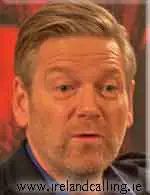 1960 Happy birthday to Kenneth Branagh, born in Belfast on this day in 1960. He is an actor and director, who made his name in the early 1990s with his film adaptations of several William Shakespeare classics.
1960 Happy birthday to Kenneth Branagh, born in Belfast on this day in 1960. He is an actor and director, who made his name in the early 1990s with his film adaptations of several William Shakespeare classics.
Branagh is just as comfortable behind the camera as he is in front of it. He directed the Hollywood blockbusters Thor and Jack Ryan.
Branagh was also the narrator for the BBC series Walking with Dinosaurs, which saw incredible computer animated nature documentaries, about the ancient creatures and their behaviour. He returned to do the voiceover work for the sequels Walking with Beasts and Walking with Monsters.
Click here to read about more great Irish actors

* * *
1977 Mairead Corrigan and Betty Williams were awarded the Nobel Peace Prize on this day in 1977. The Belfast women were named as joint recipients of the prestigious award for their work towards ending the violence in Northern Ireland.
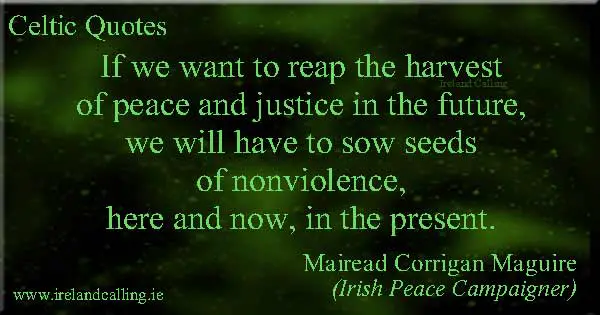
The pair co-founded the organisation Women for Peace (which later became the Community for Peace People) to campaign for a peaceful resolution to be found to the conflicts. The 1960s and 70s were marred by the ‘Troubles’ in Northern Ireland, as republicans and loyalists carried out horrific attacks on each other in the name of politics.
Hundreds of innocent civilians lost their lives as a result of these sometimes indiscriminate attacks. Corrigan and Williams set up the Community for Peace People to try and address the issue, and offer a voice for the innocent people caught up in the middle of the violence.

* * *
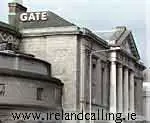 2002 On this day in 2002, the director of the Gate Theatre in Dublin, Michael Colgan, was given a cheque for €300,000 courtesy of The Irish Funds organisation. The money was to fund the redevelopment and upkeep of the historic venue that has been a key part of Dublin’s culture scene for nearly a century.
2002 On this day in 2002, the director of the Gate Theatre in Dublin, Michael Colgan, was given a cheque for €300,000 courtesy of The Irish Funds organisation. The money was to fund the redevelopment and upkeep of the historic venue that has been a key part of Dublin’s culture scene for nearly a century.
Click here to read about some of the must-see attractions when visiting Dublin
* * *
 2005 Elizabeth Yensen, the oldest women in Ireland passes away at 110 years 132 days old. She was born in Glasgow on 25 July 1895, and then Elizabeth spent more than 70 years in Northern Ireland. She is one of the 100 oldest British and Irish women ever. She was born in the 19th century and lived until the 21st century.
2005 Elizabeth Yensen, the oldest women in Ireland passes away at 110 years 132 days old. She was born in Glasgow on 25 July 1895, and then Elizabeth spent more than 70 years in Northern Ireland. She is one of the 100 oldest British and Irish women ever. She was born in the 19th century and lived until the 21st century.
She is said to have laughed a lot which may have helped with her longevity.
Professor Tom Kirkwood of Newcastle University told The Independent newspaper: “A sense of humour appears to be a good coping strategy that can influence longevity.”
december-bottom.html
